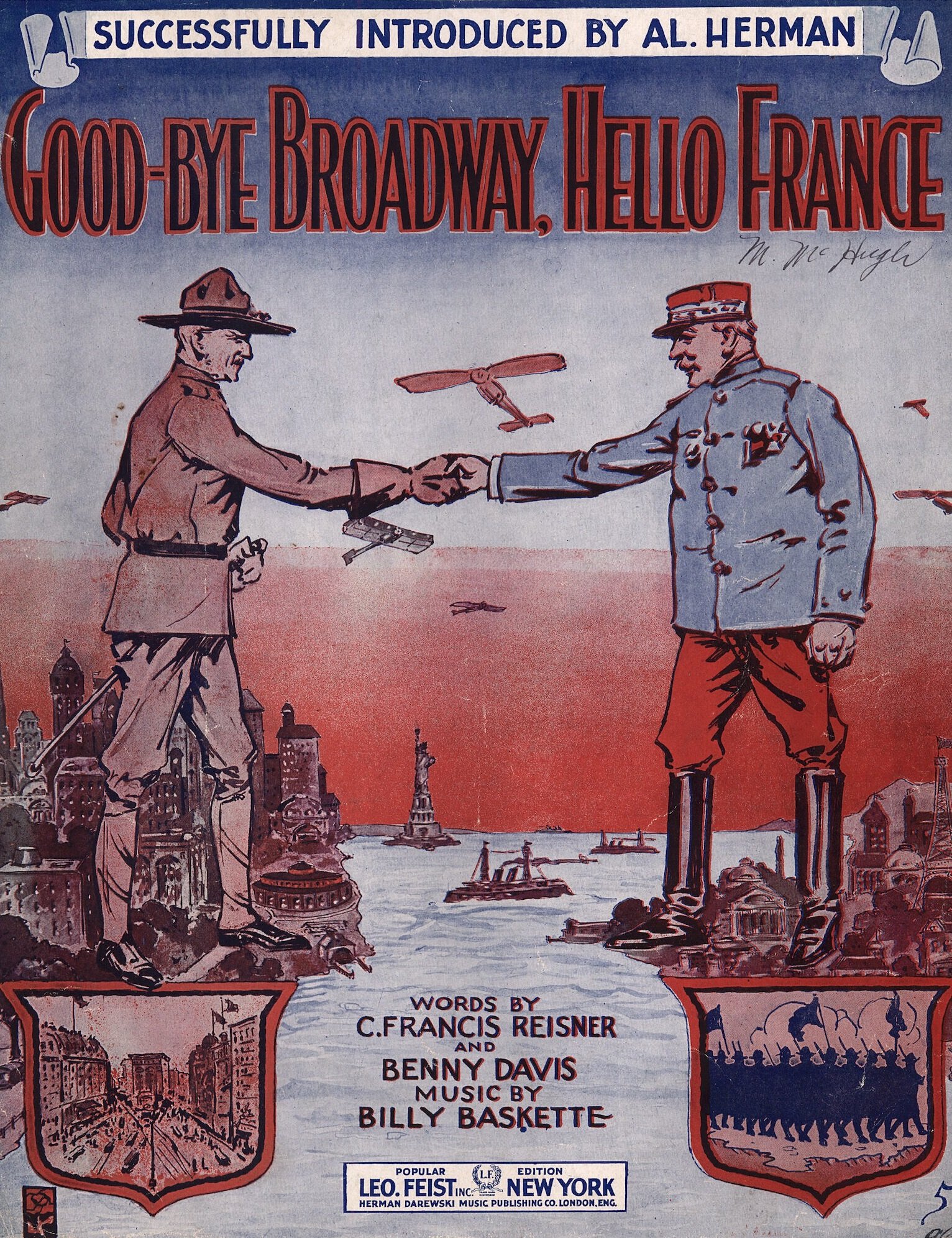Goodbye Broadway, Hello France
From the Collection: A 78RPM record from the First World War
When the United States went to war in 1917, like in all wars popular music followed, and many songs were written with the intention of boosting morale or supporting the war effort. WWI was notable as the first major conflict that was followed by home music media in the form of the 78rpm record, with the ragtime style popular at the time being used for several popular songs related to the war effort.
Written in 1917 by C. Francis Reisner and Benny Davis, and set to music composed by Billy Baskette, Goodbye Broadway, Hello France was among the most popular American tunes of the conflict. First performed at a war themed show in New York in that year, both recordings distributed by RCA Victor and sheet music for family musicians became immensely popular.
Sheet Music Cover
The cover for the sheet music looked similar to a period propaganda poster, with the figures of General Pershing and General Joffre shaking hands across the Atlantic. The lyrics themselves consist of a first verse about the American “Doughboys” leaving New York as their loved ones send them off, and a second about the close ties between the US and France dating back to the American Revolution, referring specifically to repaying the American debt to France from that conflict.
This popular song was emblematic of the often cited feelings of the American populace, as well the intentions of a government determined to eliminate anti-war sentiment. The song saw something of a resurgence in the Second World War, although on a much smaller scale, and remains today an indispensable part of any WWI themed music library.
The copy in my personal collection is an original Victor 78rpm record made before 1919, as evidenced by the presence of the price of .75¢ on the label, which was dropped in that year. It was performed by the American Quartet, comprising John Bieling, Billy Murray, Steve Porter and William Hooley. It plays well, with only light scratching, and still sounds pleaseant. As for the song itself, I have long been a fan of wartime ragtime tunes, and this is no exception. The B-side of the record features another Great War favorite (to be featured later) Where Do We Go from Here?, also by the American Quartet.

